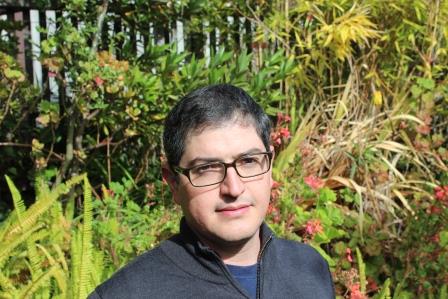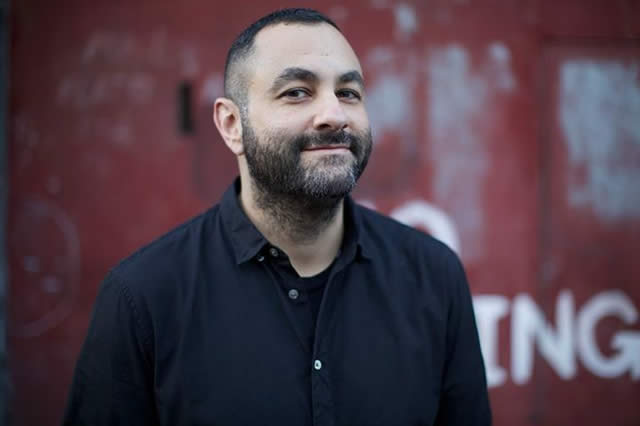|
THE SCIENCE OF CONSCIOUSNESS Pre-Conference Workshop Monday, April 25, 9 am to 1 pm
Consciousness Versus Attention A longstanding debate concerns whether consciousness and attention are separable. In this workshop philosopher Carlos Montemayor and cognitive scientist Harry H. Haladjian, authors of ‘Consciousness, Attention, and Conscious Attention’ (MIT Press) analyze empirical and theoretical work on attention and consciousness. They propose a spectrum of dissociation ranging from identity to full dissociation, and further discuss implications for evolution and artificial intelligence.
Presenters: Carlos Montemayor and Harry Haroutioun Haladjian Consciousness and Attention Dissociation
Our workshop will explore the possible dissociation between conscious awareness and perceptual attention. We recently published a book (MIT, 2015) on this issue, defending the view that there must be some degree of dissociation between consciousness and attention. We describe several degrees of dissociation, from views where attention is necessary for conscious awareness to full dissociation views in which attention and consciousness never overlap. In the workshop, we propose to identify concrete implications of these forms of dissociation. Below we specify implications for two topics of the conference and conclude by suggesting implications for other topics. Machine consciousness and artificial intelligence We propose an important implication of the Consciousness Attention Dissociation (or CAD) for artificial intelligence and machine consciousness: while simulated thinking may be thinking, simulated emotional feeling cannot be emotional feeling. A section of the workshop will be devoted to discussing this issue with focus on the Emotional Turing Test. In particular, we will discuss the view we defend in our book that attention is epistemic in nature, but phenomenal consciousness is empathic in nature. This has the implication that while machines may be able to develop sophisticated forms of attention and become intelligent in many ways that resemble human intelligence, they will lack capacities for phenomenal consciousness required for empathy. The origin and evolution of life and consciousness A discussion on the evolution of consciousness and attention will address the view that conscious attention must have evolved much more recently in our evolution than basic forms of attention, which must have appeared very early in the evolution of life. The CAD framework helps explain various possibilities regarding which forms of consciousness must be more recent and may be more independent or even dissociated from early forms of attention. There is a connection between CAD in the context of evolution and artificial intelligence. If one endorses the view that the evolution of consciousness and attention has been leading to a form of intelligence that may surpass human intelligence but lack the emotional requirements underlying empathy, then CAD could be used to explain not only the separate evolutionary history of attention and consciousness but also of attention in machines and human consciousness. Other implications of the CAD framework Other interesting implications for topics of the conference include some accounts by physicists. For instance, Henry Stapp’s interpretation of Quantum Mechanics is based on von Neumann’s work, and Stapp argues that consciousness is essential to the rationally guided process that probes an answer in an experiment. This process, however, could be explained exclusively in terms of rational attention without awareness (a possibility that the CAD framework justifies). If that were the case, consciousness would not be necessary to interpret Quantum Mechanics. A similar point can be made about Max Tegmark’s recent distinction between computronium (which he defines as information processing) and perceptronium (which he defines as self-awareness). Also, the functional roles proposed by our framework (e.g., for empathy, as a mechanism for engagement) have implications for understanding the Causes of Consciousness. Relevant links Book https://mitpress.mit.edu/index.php?q=books/consciousness-attention-and-conscious-attention Psychology Today Blog https://www.psychologytoday.com/blog/theory-consciousness Brains Blog http://philosophyofbrains.com/category/books/montemayor-haladjian
Workshop Outline Each section with a Q/A period after a short presentation:
Carlos Montemayor (Ph.D., Rutgers University) is Associate Professor of Philosophy at San Francisco State University, and the author of Minding Time: A Philosophical and Theoretical Approach to the Psychology of Time (Brill, 2013) and Consciousness, Attention, and Conscious Attention (MIT Press, 2015), co-authored with H. H. Haladjian. Montemayor frequently collaborates with psychologists and neuroscientists. His work focuses on visual attention, consciousness, and the psychology of time.
Harry Haladjian is currently a postdoctoral research fellow in the Laboratoire Psychologie de la Perception at the Université Paris Descartes. He obtained a Ph.D. in Cognitive Psychology at Rutgers University under the direction of Zenon Pylyshyn, where his work focused on object representation and individuation in early vision. Current research interests include low-level perception, visual attention, the effects of eye movements on perception, phenomenal awareness, and the philosophical implications of these topics.
Optional - Pre-Conference Workshops Workshops are held: Monday/Tuesday, April 25 - 26 Monday Morning 9-1: Monday Afternoon 2-6 Monday Evening 7-10 and Tuesday Morning 9-1 half day and evening Workshops Early Workshop Fees: TSC Student Registrants $40 half day TSC General Registrants $60 half day General Public - Student - Workshop only $75 half day General Public - Workshop only $125 half day
|
|
|||||||||||||

